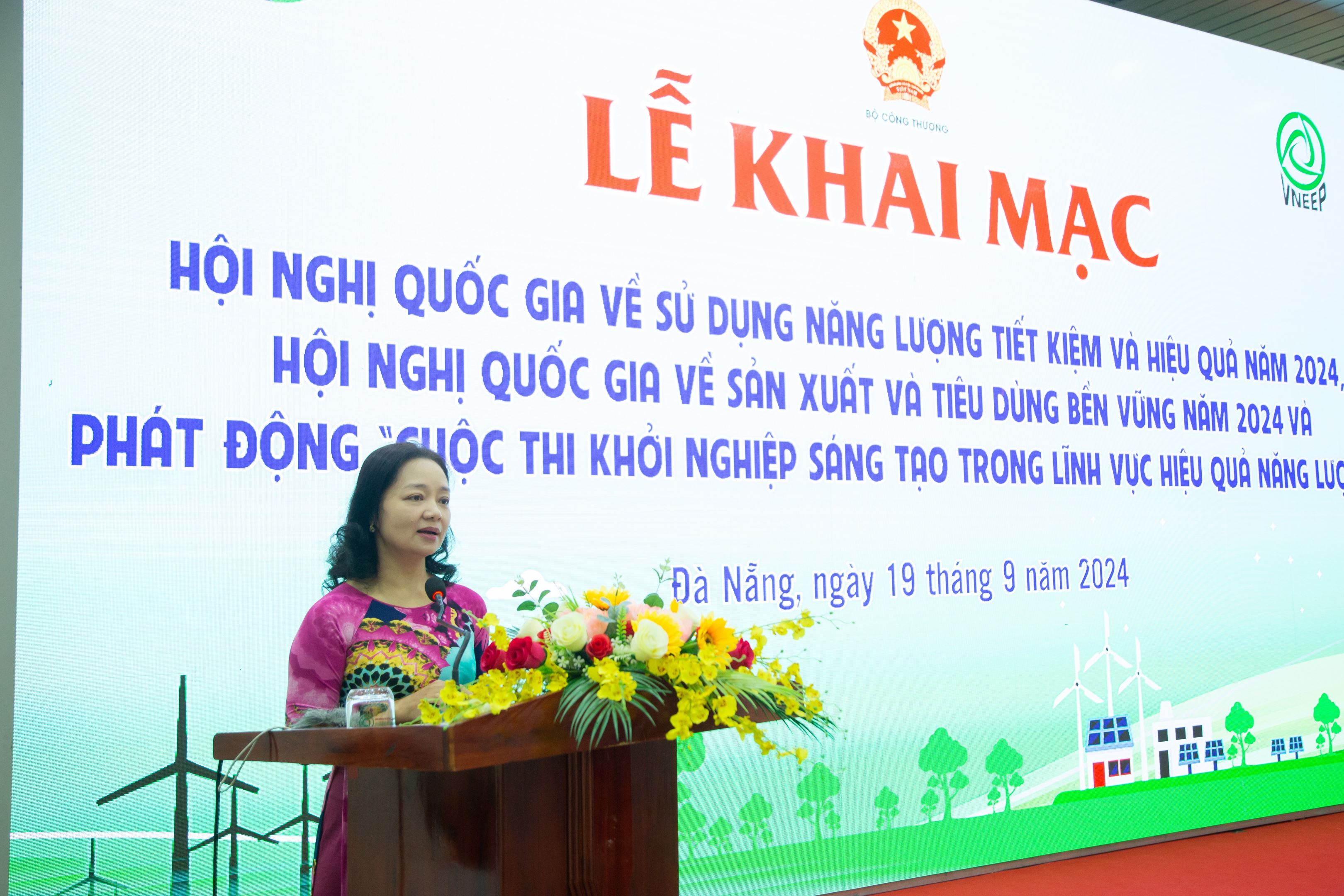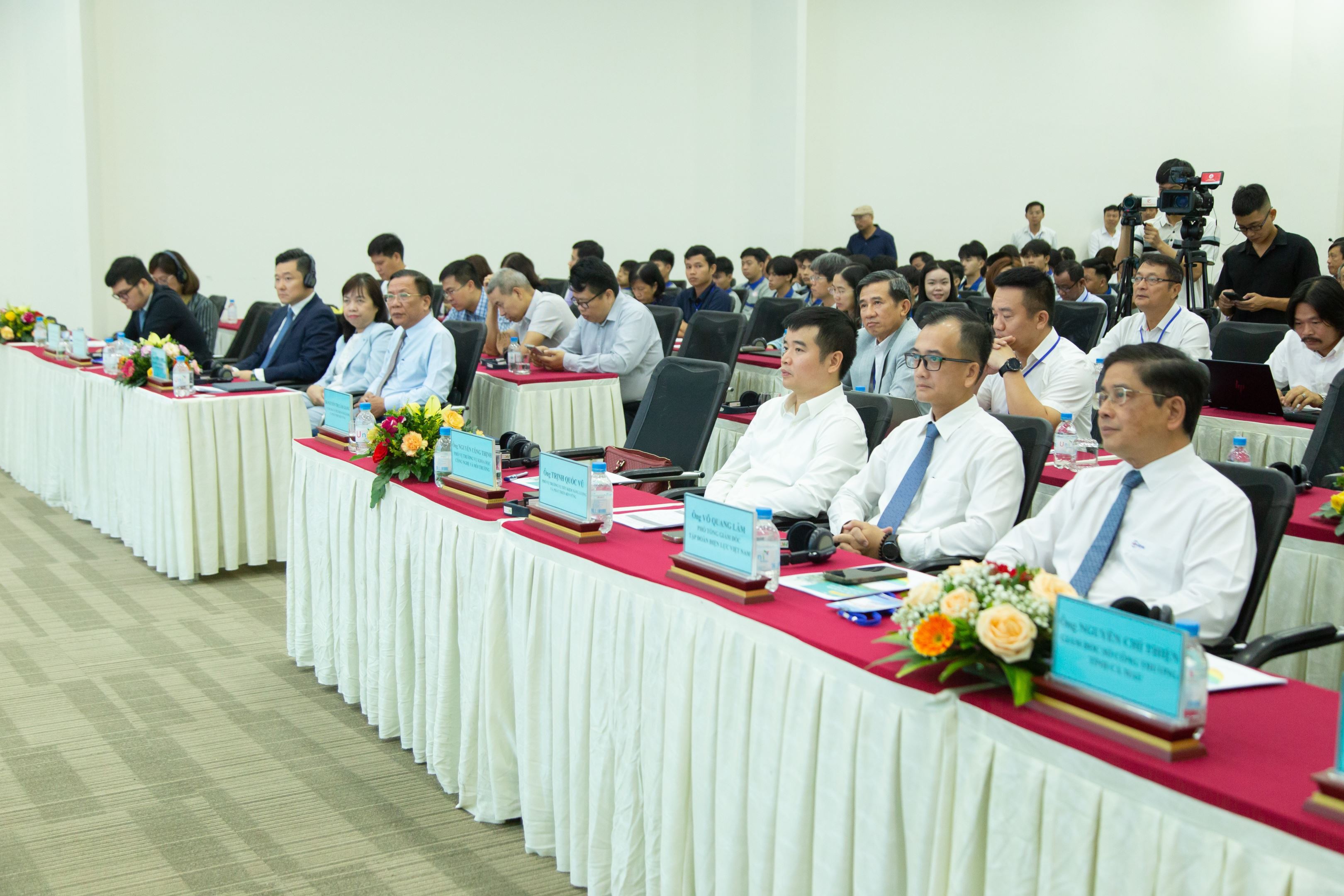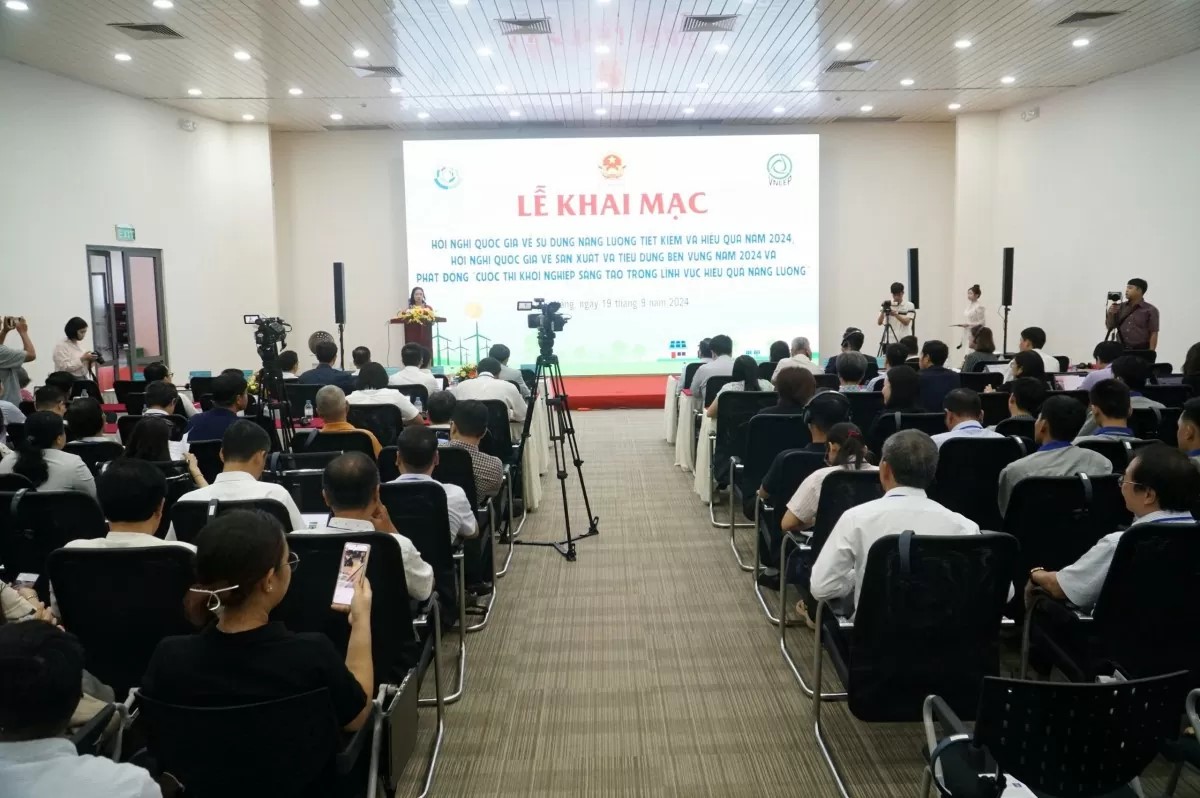
Ms. Nguyen Thi Lam Giang - Director of the Energy Efficiency and Sustainable Development Department, Ministry of Industry and Trade.
The conference aimed to evaluate the results of the National Program on Energy Efficiency and Conservation up to 2024, set the direction, and accelerate activities under the program for 2025 and the following years.
Representatives from the Ministry of Industry and Trade (Department of Energy Efficiency and Sustainable Development), related ministries, agencies, provincial/city Departments of Industry and Trade, industrial promotion centers, provincial/city energy efficiency centers, and organizations and individuals involved in energy efficiency nationwide attended the conference.
Since 2015, Vietnam has shifted from being an energy exporter to an energy importer, increasingly dependent on imported fossil energy. Meanwhile, investment in power generation and grid development requires significant societal resources. Renewable energy sources remain costly and are limited in terms of system capacity due to technical barriers in maintaining system stability. Therefore, the efficient use of electricity and energy has become increasingly important for ensuring power supply, conserving national energy resources, protecting the environment, and mitigating the impacts of global climate change.
On March 13, 2019, the Prime Minister issued Decision No. 280/QD-TTg, approving the Vietnam National Energy Efficiency Programme for the 2019-2030 period (VNEEP3). The program aims to save 5-7% of total national energy consumption by 2025 and 8-10% by 2030, equivalent to approximately 60 million tons of oil equivalent (TOE).
On June 8, 2023, the Prime Minister issued Directive No. 20/CT-TTg on strengthening electricity savings from 2023 to 2025 and the following years. The directive set a target of saving 2% of electricity consumption annually and outlined measures for ministries, agencies, localities, and electricity users to implement to meet these goals.
In her opening remarks, Ms. Nguyen Thi Lam Giang, Director of the Department of Energy Efficiency and Sustainable Development (Ministry of Industry and Trade), emphasized: "The programs and directives reflect the strategic vision and consistent policies of the Government regarding the critical and strategic role of energy efficiency in the sustainable development of the national economy both now and in the future."
Sharing some results of the VNEEP3 up to 2024, the Department of Energy Efficiency and Sustainable Development noted that 60 out of 63 provinces have issued local implementation plans for the 2020-2025 period and the 2030 period. All 63 provinces and centrally governed cities have developed and issued implementation plans for Directive No. 20, dated June 8, 2023, on electricity savings from 2023-2025 and the following years or issued directives from the Chairmen of the Provincial People's Committees. Notably, the national electricity savings program has achieved an annual savings rate of over 2% nationwide during the 2020-2023 period.
The Ministry of Industry and Trade has submitted to the government the issuance of Decree No. 17/2022/ND-CP amending and supplementing Decree No. 134/2013/ND-CP, dated October 17, 2013, on penalties for administrative violations in the field of energy efficiency and conservation. The Ministry has also coordinated with the Ministry of Science and Technology to submit to the Prime Minister Decision No. 14/2023/QD-TTg, dated May 24, 2023, on the list and roadmap for phasing out energy-inefficient devices and prohibiting the construction of new low-efficiency power generation units.

Conference Participants Share Experience in Implementing Energy Efficiency Programs.
The conference also highlighted decisions, circulars, technical guidelines, training seminars, human resource development activities, competitions, awards, and other initiatives in energy efficiency and conservation implemented by the Ministry of Industry and Trade, all of which have achieved significant results.
One of the upcoming key tasks is to amend and supplement the Law on Energy Efficiency and Conservation. This law, which was issued by the government in 2010 and came into effect in 2011, needs to be revised after more than 10 years of implementation to strengthen mandatory regulations and penalties and clarify incentive mechanisms and benefits.
At the conference, Vietnam Electricity (EVN) and the Departments of Industry and Trade from several provinces and cities shared their experiences in implementing the VNEEP3 program and Directive No. 20 from the Prime Minister.
A notable event within the framework of the conference was an exhibition of products and technologies supporting energy efficiency, organized by the Department of Industry and Trade of Da Nang.
Also within the framework of the conference was the launch of the "Energy Efficiency Innovation Startup Acceleration Program."
This is the first startup acceleration program in Vietnam dedicated to energy efficiency. The program aims to attract investment in innovative energy efficiency solutions in industries such as manufacturing, transportation, and construction in Vietnam.
This startup acceleration program is part of the "Accelerating Innovative Startups for Energy Efficiency" (AIS4EE) project under the Vietnam-EU Sustainable Energy Transition Program (SETP), funded by the European Union. The program offers a total prize of up to USD 10,000 for student startup teams.
Additionally, participants have the opportunity to attend domestic and international investment calling events from venture capital funds, including investment from the Touchstone Partners fund and potential investments from partner funds.
The AIS4EE project is co-funded and implemented by the Global Green Growth Institute (GGGI), an intergovernmental organization established by treaty to promote green growth globally. The startup acceleration program is managed by the Touchstone Partners investment fund.

The conference provided an opportunity for agencies and businesses to share and learn experiences in energy efficiency.
Through promoting investment, the startup acceleration program will contribute to the overall objectives of Vietnam National Energy Efficiency Programme for the 2019-2030 period. Additionally, fostering innovative energy efficiency solutions will contribute to Vietnam's energy transition efforts, aimed at achieving the climate change goals to which Vietnam has committed.